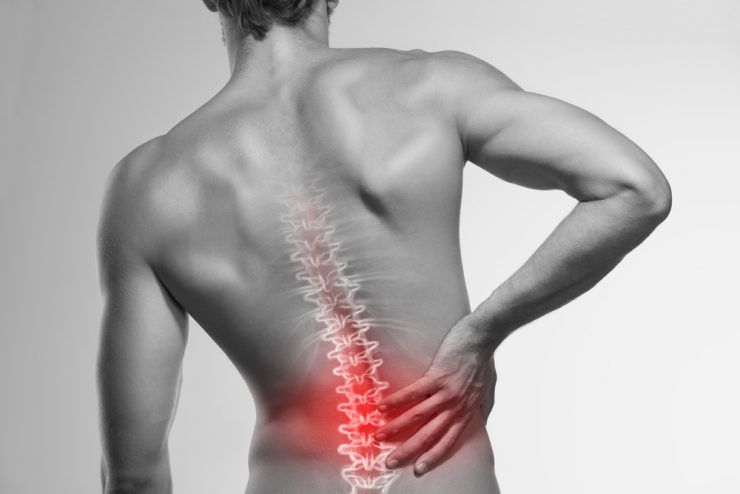Plagued by backache? You are not alone.
Editor Jane Garton looks at some herbs and things you can do yourself to help to soothe the pain.
Back pain blights eight out of ten of us in the UK[i], especially lower back pain, at some time in life and is the most common reason for visiting the GP. A wrong move, sleeping awkwardly, carrying too heavy a load, as well as age-related changes in the spine or a ‘slipped’ disc are all triggers. Thankfully for most of us the pain subsides fairly quickly without the need for a trip to the surgery. Meanwhile, here are some natural remedies that can help to bring relief.
Devil’s claw
So called because of the vicious hooks on its fruits which stick to animals’ feet, devil’s claw is a firm favourite with herbalists for soothing aches and pains such as back pain. Long used by bushmen living in the Kalahari Sands of Namibia for back and joint problems, numerous clinical studies[ii] show that devil’s claw contains substances that have analgesic and anti-inflammatory properties that can help a wide variety of joint problems including backache.
It is not known exactly how devil’s claw works but the anti-inflammatory properties of the active compounds, the harpagosides, and the plant sterols found in its roots, are thought to be responsible.
Turmeric
This ancient herb from Southern Asia is probably best known as the spice that gives curry blends their yellow colour but due to its active ingredient curcumin it has pain-relieving properties. Consider a supplement or include in your cooking.
Valerian
Pain and inflammation are not the only symptoms of back pain. Depression is another common side effect. Endless days of pain can be wearing which sooner or later can start to get you down. And this is where the soothing herb valerian can help relax you. It can be taken through the day or at night. And if the constant pain makes it hard for you to get to sleep, a cup of valerian tea at bedtime may be just what’s needed to help you drop off.
Glucosamine (and chondroitin)
Many people find relief from back and hip pain – particularly if it’s linked to osteoarthritis – by taking a supplement of glucosamine combined with chondroitin, two compounds naturally found in joint cartilage.
Fish oils
In one study[iii], 60% of sufferers of non-specific neck and back pain said their symptoms improved by taking fish oil supplements. It’s thought that omega-3 fatty acids in oily fish or supplements can help reduce the inflammation that can trigger pain.
If you keep on getting backache try the following:
- Take regular low impact exercise – walking, cycling or swimming (avoid breaststroke which can strain your neck) can improve strength and flexibility.
- Walk tall – Imagine an invisible cord pulling you up from the top of your head to the ceiling. Try not to slouch or hunch your back.
- When sitting, tuck your bottom into the seat of the chair; make sure the bottom of your back is well supported (use a rolled up towel if necessary) with your feet on the floor or stool.
- Avoid bending over the steering wheel when driving.
- Wear flat shoes with cushioned soles to help reduce stress on your back.
- If you are carrying shopping bags or luggage, try to distribute the weight evenly on both sides of your body.
- Lose weight if you need to. While maintaining a healthy weight won’t guarantee a pain-free back, it could reduce your risk of problems, as well as benefiting your health in general.
- Use a keyboard If you work on a laptop invest in an external keyboard and place your laptop on some magazines or get a monitor arm or screen raiser.
Watch point
If your back pain lasts longer than six weeks and is especially debilitating ask your GP to check it out. You should also consult your doctor if the pain is accompanied by symptoms such as fever or pins and needles, or if you feel unsteady on your feet.
This year’s Back Pain Week runs from October 7th -11th For more information visit the backcare website.
[i] https://www.nhs.uk/conditions/back-pain/
[ii] https://www.ncbi.nlm.nih.gov/pmc/articles/PMC520753/
[iii] https://www.ncbi.nlm.nih.gov/pubmed/16531187
























Add comment